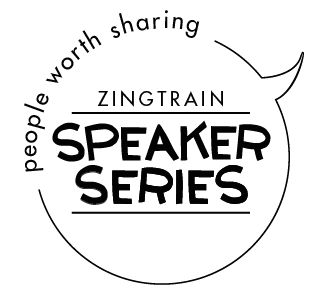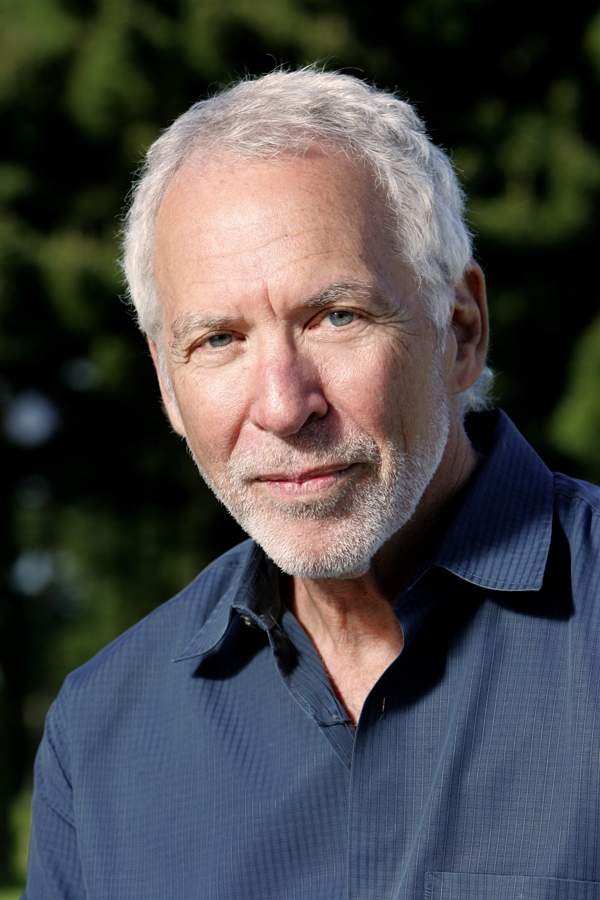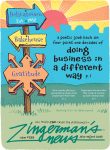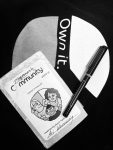Peter Block: Creating a Compassionate Economy

This blog post was written by Peter Block for the Zingerman’s Community site as a preview of the content of his Speaker Series session coming up on Wednesday, August 31.

Building Economically Viable Neighborhoods
Peter will talk about getting really serious about creating neighborhood economies that work for all. Especially in places which are persistently challenged even in good economic times. The session will focus concretely about a fundamental shift in narrative, from language of upward mobility, individualism and brokenness to a language of place, the commons and wholeness. He will talk about new measures of vitality, as opposed to the current annual income as the sole measure of well-being. He will discuss untapped sources of capital that support uncollateralized entrepreneurs and co-operative structures for everything.
Underlying all of this is a shift in thinking that is required to really address the popular symptoms of income disparity and debt burden. It is based, in part on his, John McKnight and Walter Breuggemann’s new book, “An Other Kingdom: Departing the Consumer Culture.” This shift in thinking opens the possibility of moving from a competitive, often predatory economy to an Economics of Compassion Initiative that is happening in Cincinnati.
What follows is the shift in thinking.
Shifting the Consumer Assumption
We want to tilt the economic system towards the common good and end the exiling effects of the current market system. To do this we need to question the basis of the free market consumer economy. The consumer economy is based on certain assumptions:
1. Whatever you have is not enough. If what you have is not enough, then you are not enough. If you have less, then obviously something is wrong with you. This is a scarcity worldview. Scarcity is the engine that drives our economy. Only what is scarce has value. This idea of scarcity is constantly marketed. It is what keeps us constantly wanting. We end up describing people by their average annual income. It also keeps an alternative future out of reach of people on the margin.
2. Whatever you need can be purchased. Everything can be outsourced. Want to raise a child, care for the elderly, be safe, be healthy? You can hire people and systems to do this. The service economy is a catchword for this. We have been distracted from our communal and neighborly capacity to produce much of what truly matters. Being poor in this context means that you do not have the means to outsource.
3. Labor is a commodity. A person can be purchased at the lowest cost and is expendable, replaceable and a holding action for automation. Capital chases cheap labor. It commodifies us. It dehumanizes us and separates us from the human soul that provides the labor. Community and the common good pay for this. In an economy that only rewards market value, if you live on the margin, or are elderly, or a child or youth, or unschooled, then you are declared useless.
4. Land is a commodity. It is useless if not developed and therefore has no market value. If land must be developed to have value, then nature is simply another tool of production. Climate change must be denied. This assumption rests on the belief that if we finally consume and exhaust the land, air and water, and patent nature’s seeds and scents, technology will provide us the genes and tools to adapt to the exhaustion and the engineered life. The land in marginal communities has been considered as waste. Wasteland. The neighborhood then has no economic prospects.
The Alternative Economy is Underway
The shift in the economic system is underway; an alternative system is all around us. It goes by many names: Economics of Happiness, Generosity Economy, Genuine Wealth, Gift Economy, Core Economy, Co-operative Economy, Social Economy. Sharing Economy. We are calling it a Compassionate Economy. All of these names place the common good, the well-being of all, at their center. They declare that there are cultural and spiritual values at the center of community that take precedence over market values. That these cultural and spiritual values are inherent in every place and every human being. That social relationships and social capital are more a measure of value than annual income. This is the shift.
To summarize, the distinctions between the beliefs of the compassionate economy and the market economy are:
1. Co-operation vs Competition. An economy based on local co-operation including the core economy of exchange and generosity, sometimes not monetized vs an economy based on competition, globally sourced advantages and measured only by monetized economic activity, called Gross Domestic Product.
2. Commonwealth vs Privatization. An economy giving priority to the common good and collective interests vs an economy maximizing privatization and individual rights. The “Free” in free market ideology is about freedom from limits and regulation. It is blind to “Free” as in life, liberty and the pursuit of happiness.
3. Gifts vs Deficiencies. The language of the possibilities, gifts and enterprise capacities of neighborhood residents vs the language of neighborhood problems, needs and deficiencies. Even the terms “poor” and “living in poverty” are a distorted and shrunken version of the full humanity of our neighbors.
4. Social vs Profit Purpose. Enterprises which primarily exist for the sake of employees, producers, customers and social good vs enterprises whose primary purpose is return to investors and owners. 140 million people in the US are member of some form of co-operative venture.
5. Local Knowledge vs Expert Knowledge. A belief in the inherent wisdom of local culture, social capital and the productive capacity of citizens vs a belief in commodification, development and resume laden expertise.




Zingerman’s Art for Sale